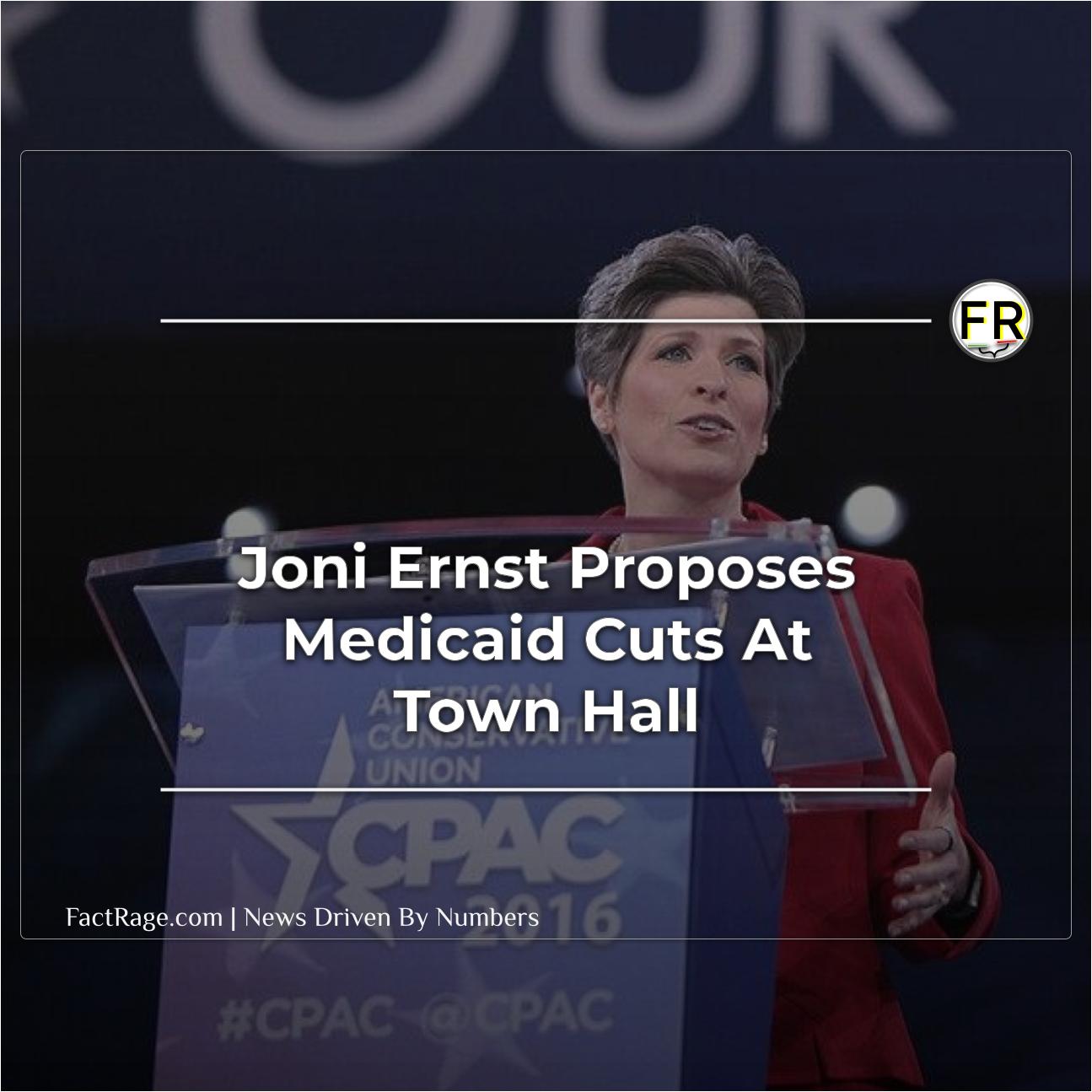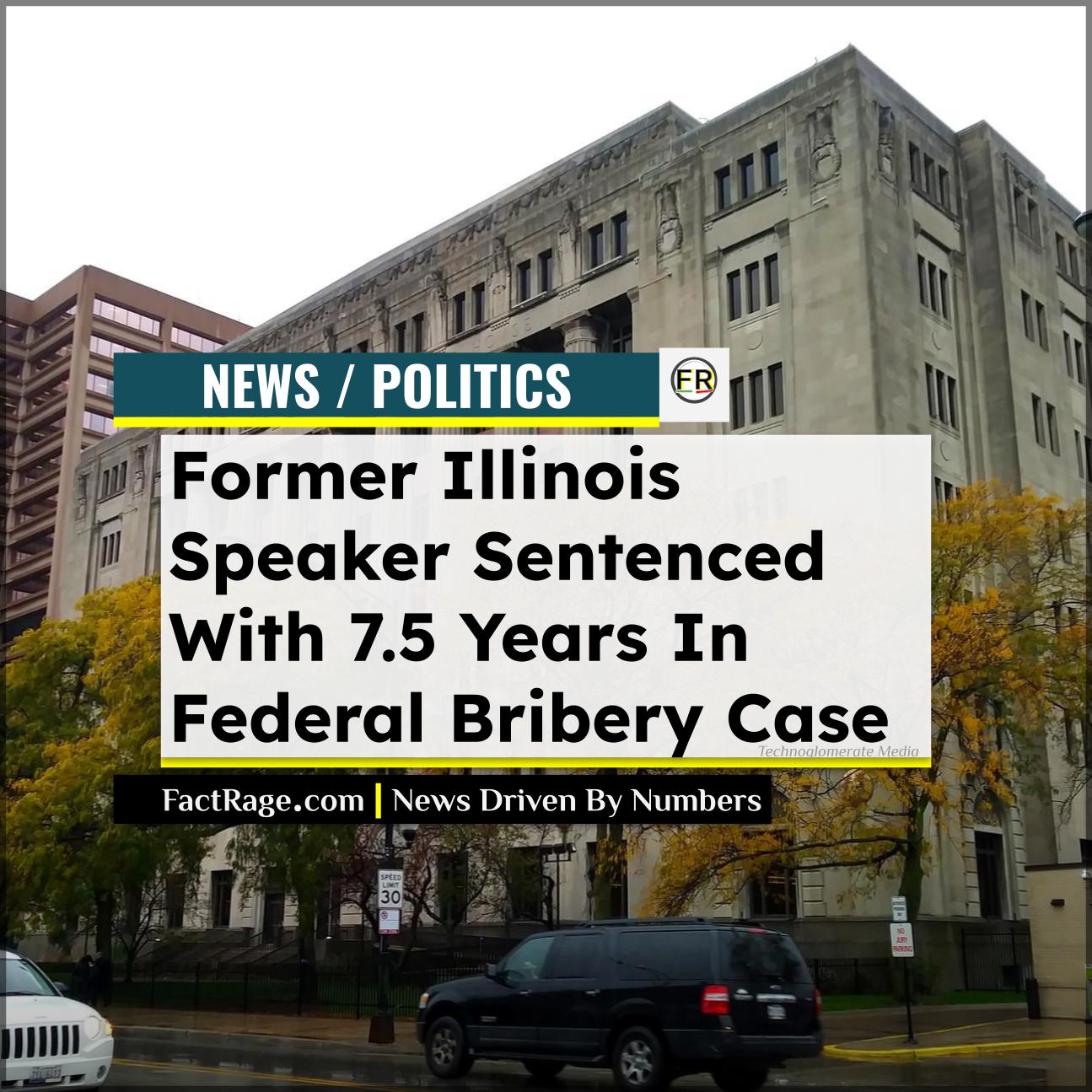PARKERSBURG, IA – Senator Joni Ernst (R-IA) faced a contentious town hall in north-central Iowa on Friday, where discussions on proposed Medicaid changes and federal spending drew shouts and groans from constituents.
Key Facts:
- Medicaid Debate: Senator Joni Ernst defended proposed changes to Medicaid eligibility, stating that they aim to focus resources on those most vulnerable by removing individuals not originally eligible and those with employer-provided insurance or undocumented immigrants.
- “We All Are Going to Die” Comment: During a heated exchange regarding the potential impact of Medicaid cuts, Senator Ernst remarked, “People are not well, we all are going to die,” drawing immediate groans and shouts from the audience.
- “Big, Beautiful Bill” Under Scrutiny: The town hall primarily focused on the recently passed House tax and immigration package, dubbed “the big, beautiful bill” by President Donald Trump, which is now under consideration in the Senate and includes significant spending reductions.
Senator Ernst’s latest town hall provided a glimpse into the broader national debate surrounding healthcare reform and federal fiscal policy, with constituents expressing strong concerns about potential impacts on vital services.
Examining the Medicaid Discussion

The most prominent point of contention at the Parkersburg town hall revolved around the future of Medicaid. Constituents voiced concerns about potential cuts to the program, which provides healthcare coverage to millions of Americans. Senator Ernst maintained that the proposed $700 billion in reduced spending within the “big, beautiful bill” would not harm vulnerable populations.
Instead, she asserted that the changes are designed to “strengthen Medicaid by directing the dollars to the people that actually meet the requirements of the program.” This would involve removing individuals from the rolls who are either not currently eligible by the “original definition” of Medicaid, have access to insurance through their employers, or are undocumented immigrants.
The Viral Moment: “We All Are Going to Die”
The intensity of the discussion peaked when a constituent interjected during Ernst’s defense of Medicaid reforms, shouting that people would die without coverage. Senator Ernst’s response, “People are not — well, we all are going to die, so, for heaven’s sakes. For heaven’s sakes, folks,” immediately drew widespread groans and shouts from the audience. This comment quickly circulated online, drawing criticism from Democratic officials and candidates who interpreted it as dismissive of the public’s concerns about healthcare access.
Senator Ernst’s office later clarified that the comment was a broader philosophical point about mortality, rather than a direct dismissal of the specific policy concerns. Despite the uproar, Ernst reiterated her commitment to protecting those who meet Medicaid eligibility requirements, stating, “What you don’t want to do is listen to me when I say that we are going to focus on those that are most vulnerable. Those that meet the eligibility requirements for Medicaid we will protect.”
The “Big, Beautiful Bill” and its Implications
The House-passed spending and tax cut package, strongly supported by President Trump, was a central theme. This legislation, which passed the House by a single vote, now moves to the Senate for consideration. Senator Ernst indicated that any measure emerging from the Senate would likely differ from the House version, given the distinct rules of the upper chamber.
A preliminary estimate from the nonpartisan Congressional Budget Office (CBO) suggests that the proposals within the bill could reduce the number of people with healthcare by 8.6 million over the next decade. Democrats argue that millions of Americans will lose coverage, while Republicans defend the new work requirements for able-bodied adults without dependents and stricter eligibility verification as necessary measures to sustain the program for truly vulnerable populations. How will these proposed changes ultimately impact healthcare access for millions across the nation?
Other Topics and Constituent Concerns

Beyond Medicaid, Senator Ernst also engaged in discussions regarding the Department of Government Efficiency (DOGE) and her support for Defense Secretary Pete Hegseth. However, the proposed Medicaid changes remained the predominant concern for many in attendance, reflecting a broader public anxiety over healthcare access and affordability. The town hall underscored the challenges lawmakers face in communicating complex legislative changes to a public keenly aware of how such policies can directly affect their lives.











